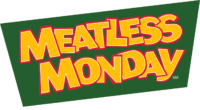Plant Protein Power FAQ
The FAQs on this page were produced with The Johns Hopkins Center for a Livable Future to support our Plant Protein Power package.
Still not sure if you can get enough protein from plant-based sources? We’ve rounded up the answers to many common questions. These FAQs have been composed by Becky Ramsing, Senior Program Officer with the Johns Hopkins Center for Livable Future and a Registered Dietitian who is the lead technical advisor for the Meatless Monday campaign.
Can I easily get full protein each day without eating meat?
Yes, you can. There are plenty of fresh, flavorful ways to get your recommended dietary allowance (RDA) of protein without eating meat. And plant-based protein is an excellent choice. Certain nuts, beans and grains are especially high in protein – not to mention rich in nutrients that help you feel great.
Can I get the same amount of protein from plants as I can from meat?
Again, yes. Many plant-based foods have plenty of protein. However, to get the same amount of protein as found in meat, you may have to eat a larger quantity of the plant-based foods. For example, to equal the protein in a 3 ounce portion of meat, it would take 1 cup of cooked beans. Keep in mind that we get protein in many different foods in our diet and it adds up! Plant-based foods are also packed with important nutrients and fiber, which you also need for a healthy, balanced diet.
Do I have to eat a combination of plant-based foods to in order to get complete protein?
The answer is yes, but you’re most likely eating this combination already without even knowing it. For example, peanut butter on whole wheat bread gives you complete plant-based protein. So do corn tortillas with beans. Plant-based foods complement each other to form a “complete protein.” This occurs when all the needed amino acids (or protein building blocks) are present in sufficient quantities to make new proteins in your body.
To get complete protein, do I have to eat a particular combination of plant-based foods at each meal?
No. Your body combines the plant-based protein sources for you naturally over time, such as having one item for lunch and a complimentary item for dinner. In other words, your body “completes” the protein for you, even if each item was eaten at a different meal.
Isn’t meat protein better for me than plant-based protein?
No, it isn’t. Both animals and plants provide quality protein, but there are differences in their “packaging.” They have different combinations of vitamins and minerals, plus different types of fat. What’s more, plant proteins contain fiber, while animal proteins do not. Eating excessive amounts of processed and red meat carries risks you won’t find with plant-based protein. These include heart disease, obesity, diabetes and cancer. That’s why Meatless Monday encourages people to choose to eat meatless at least one day a week. In addition to helping your health, it also helps the planet.
I’m an active athlete. Don’t I need more protein and shouldn’t it come from meat?
Protein is key to helping athletes repair and strengthen muscle tissue. However, you can still get your full amount of protein without meat. In fact, many sports nutritionists recognize that plant-based dishes are a proven source of protein that adequately meet the intense needs of high performing athletes.
Is there a risk in consuming too much protein?
While the minimal daily intake requirements for protein are very low, the Institute of Medicine has set a wide range for safe protein intake – from 10-35% of total calories depending on the person. However, the source of the protein matters. Excessive animal protein can lead to heart disease, osteoporosis, cancer, impaired kidney function and kidney stones. Most Americans eat 1½ times more protein than they need each day, which is easy to do when you have meat at every meal. A serving of meat is surprisingly small, only 3 ounces, about the size of a deck of cards. Compare that to the size of most burgers and steaks, and you’ll understand why it’s easy to eat excessive amounts of animal protein at each meal.
Is there an easy way for me to figure out how much protein I need each day?
Use this simple equation to determine your daily protein needs. Body weight (lbs.) x 0.36 = ____ grams. (Note: This is a rule of thumb. Hard training athletes may require more protein. Nursing mothers may also need more protein. It’s always a good idea to consult with your doctor.)
If plant-based protein is so healthy, should I go 100% vegetarian or vegan?
That’s up to you. And there are certainly many healthy people who have made that choice. At Meatless Monday, our aim is to encourage people to choose to eat meatless meals at least one day a week. Just by doing that, you can make a significant difference in your health and the health of the planet.
